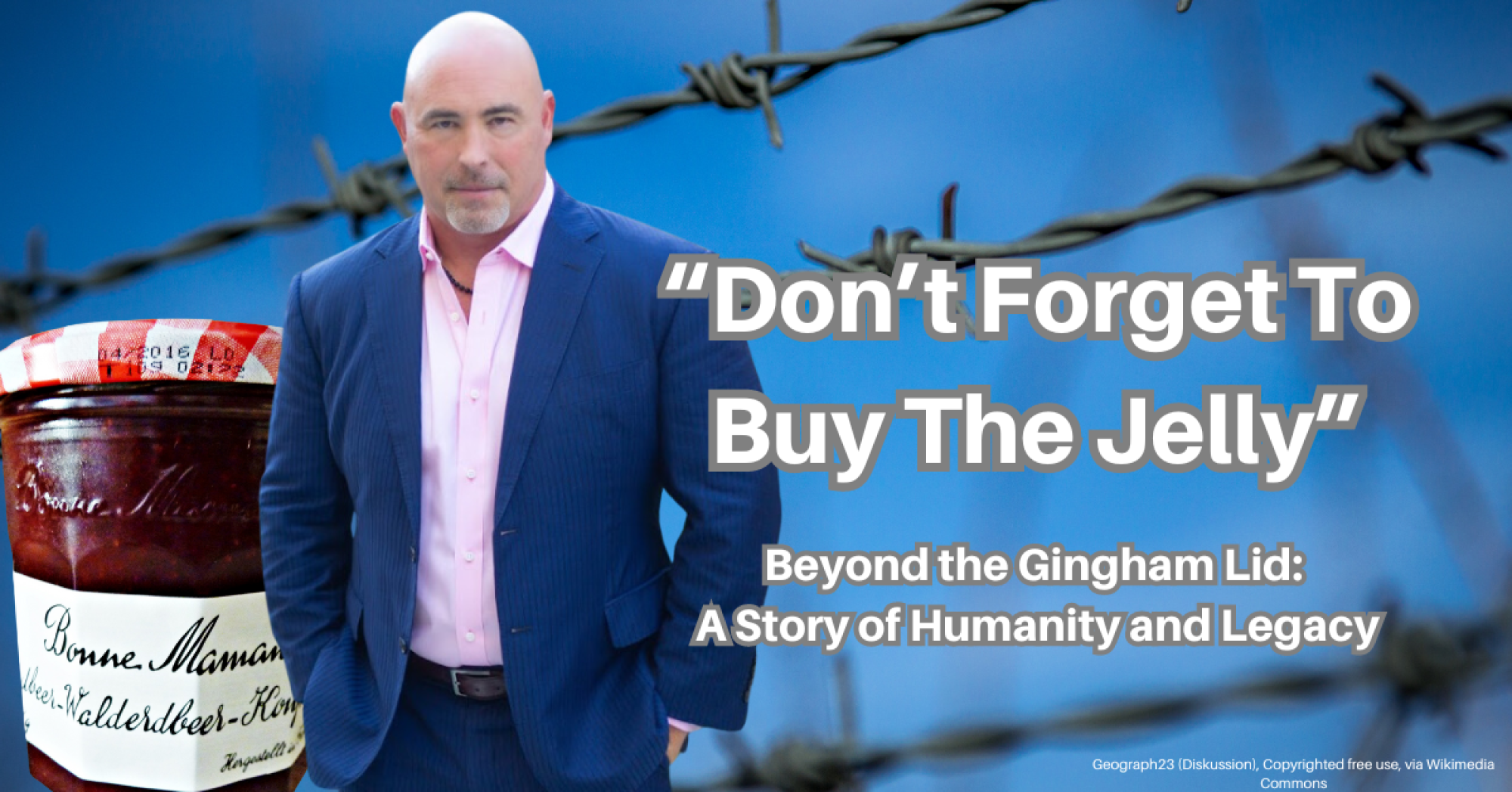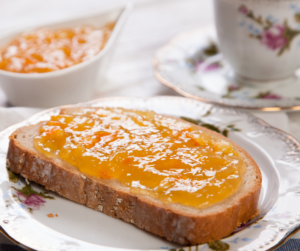
“Don’t Forget To Buy The Jelly:” What Every Entrepreneur Can Learn From The Viral Bonne Maman Story
On February 14th, 2021, writer and law professor Michael Perino wrote a Twitter thread about Bonne Maman, the French brand of jam and other sweet treats owned by Andros.
The initial narrative captured hearts with its simplicity: an elderly woman expressing her gratitude to a corporation for sheltering her family during the Holocaust.
This act of wartime kindness, juxtaposed with the company’s familiar red gingham jars, resonated deeply with many.
A touching tale of gratitude and a jar of Bonne Maman
Here’s the story Perino wrote:
At the supermarket today, I found a small, elderly woman standing in front of a high shelf holding @BonneMamanUS preserves. She was having trouble finding the flavor she wanted because the jars were set back on the shelf,
She couldn’t read the labels. She could barely reach them. I offered to help.
After I handed her the raspberry preserves, she thanked me, paused, and then asked, “Do you know why I buy this brand?”
I laughed and replied, “Because it tastes good?”
“Yes, it tastes good.” She paused again. “I am a Holocaust survivor.”
This was not the conversation I expected on a Sunday grocery run.
“During the war, the family that owns the company hid my family in Paris. So now I always buy it. And whenever I go to the store, my grandkids remind me, ‘Bubbe, don’t forget to buy the jelly.'”
I told her that that was the best reason I ever heard to buy any company’s product.
And then we both smiled behind our masks and went our separate ways.
She couldn’t read the labels. She could barely reach them. I offered to help.
After I handed here the raspberry preserves, she thanked me, paused, and then asked, “Do you know why I buy this brand?”
I laughed and replied, “Because it tastes good?”
— Michael Perino (@ProfessorPerino) February 14, 2021
But is the story true?
According to Snopes, while Bonne Maman as a company did not exist during World War II, its later founders, Jean Gervoson and Pierre Chapoulart, have ties to the French village of Biars-sur-Cère dating back to that time.
Gervoson was born in 1920 and married Suzanne Chapoulart, sister of his future business partner Pierre, after the war. The Chapoulart family had lived in Biars-sur-Cère for years, running a fruit and nut business there since about the 1910s.
In the 1950s, Gervoson began packaging and selling his father-in-law’s surplus jams, which eventually grew into the Bonne Maman brand. So, although Bonne Maman itself was not established until after the war, its founding families had already been established in the village of Biars-sur-Cère, where some Jewish families sought refuge during WWII.
A Second Connection
In a 2016 article, the Jewish Standard recounted the story of Holocaust survivor Eric Mayer, originally from the German city of Worms. Mayer escaped to France as a child along with his siblings. As he told the publication, “We were complete strangers to everyone in this village, Biars sur Cere, which then had about 800 people; it’s the village where Bonne Maman preserves come from.”
Mayer went on to note the dangers faced by those who sheltered Jews at that time: “You have to understand what it was like then. There were posters on the walls, from the Nazis and from the collaborators, and they said that if you are found to help a Jew, a freemason, a communist, a socialist, or a pervert, you will be shot on sight.”
Yet despite the risks, the villagers of Biars-sur-Cere protected Mayer and other Jewish refugee children. As an adult, Mayer expressed enduring gratitude, saying: “I have an inordinate feeling of indebtedness to them that I can never repay, even if I live to be the age of Moses.”
So, while Bonne Maman as a company did not yet exist, Mayer’s account also places its later founding families in the same tiny French village of that sheltered Jewish families like his own during World War II.
What are the odds of that?
The timeless truth behind the viral Bonne Maman story
Bonne Maman themselves refused to confirm or deny the story. A spokesperson for the company said, “Bonne Maman is privately owned by Andros, a family-owned French company located in Biars-sur-Cere, France. The family prefers to maintain privacy and does not comment on inquiries about personal matters.”
Building a business can often feel like a constant tug-of-war between profit and morals.
We strive for success, for the bottom line, yet the ethical compass within whispers of responsibility and impact.
But the story of Bonne Maman Jam, which has now become an urban legend, speaks to the legacy of kindness in the face of unimaginable darkness.
The villagers of Biars-sur-Cère didn’t seek recognition or financial gain for their bravery. They simply did what their humanity demanded. Yet, their act of courage left a lasting mark, not just on the individuals involved, but on the future of their community and, indirectly, the company that grew from it.

So, as you navigate the complexities of building a successful business, remember this:
Your impact goes beyond the numbers
While profit is essential, it’s not the sole measure of success. Consider the broader impact your business has on its employees, the community, and the environment. Building a legacy of ethical practices and positive contributions can have a ripple effect you may never fully see, but one that will undoubtedly shape your journey.
Focus on the act, not the reward
Don’t let the pursuit of external validation define your moral compass. True satisfaction comes from acting with integrity and purpose, knowing that you’re contributing to a greater good.
Kindness is contagious
When we lead with compassion, it spreads through our interactions, policies, and products in tangible ways. Customers can sense the heart behind a business.
The story of your company will outlive you. Consider what narrative you want to leave behind, and let that guide your decisions.
In the pursuit of “earning the bread, “making the dough,” and “getting yourself a slice of the pie,” just make sure you “don’t forget to buy the jelly.”
The most valuable ingredient in any business journey is the sweet taste of a lasting legacy.